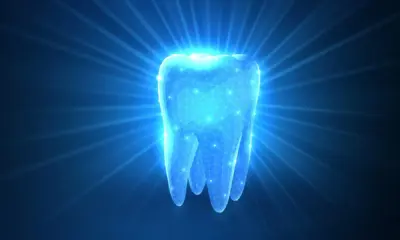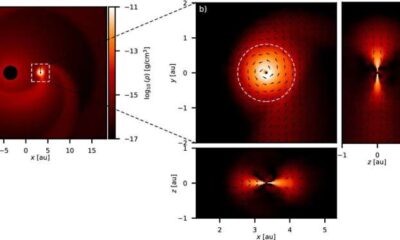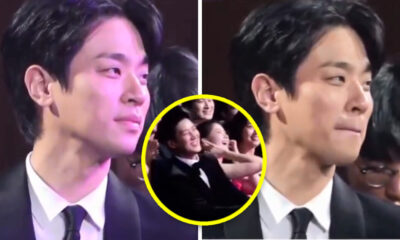Health
Neuroscientist Advocates for Youth Football Delay Until Age 14

A prominent neuroscientist is calling for a significant change in youth sports policies, advocating that children should not participate in tackle football until they reach at least 14 years of age. Chris Nowinski, co-founder of The Concussion Legacy Foundation, emphasizes that many youth football coaches lack essential training regarding concussions and the long-term risks associated with repeated head injuries.
Nowinski’s concerns are underscored by alarming statistics about youth coaching. He reveals that the average youth football coach often has never received formal training in coaching football or recognizing concussion symptoms. His advocacy is grounded in the belief that the current practices in youth football may be putting children at unnecessary risk for serious brain injuries, including chronic traumatic encephalopathy (CTE), a degenerative brain disease linked to repeated head trauma.
In a recent video, Nowinski shares troubling footage of young athletes being instructed not to “be soft,” demonstrating this with tackle dummies launched at their heads. He points out that this practice not only lacks proper safety protocols but also illustrates a broader issue within youth sports culture. According to Nowinski, “Would you be surprised to learn that the average youth football coach has never received training on how to coach football? Or how to diagnose a concussion?”
He further stresses, “If you want to keep your child’s brain safer, choose flag football under 14.” Nowinski’s message is particularly critical given that the National Football League (NFL) has recently acknowledged CTE as a legitimate concern, yet many youth football organizations have not made similar admissions. This reluctance, he argues, stems from a desire to encourage early participation in the sport, potentially at the cost of children’s long-term health.
The issue of CTE is not just theoretical; it has manifested in real and severe ways. Research indicates that individuals diagnosed with CTE at autopsy have exhibited a range of troubling symptoms, including significant cognitive decline, mood changes, and behavioral issues. The disease often presents itself in two forms. The first form can lead to mental health and behavioral problems in individuals in their late 20s and early 30s, while the second form typically manifests around the age of 60, potentially resulting in severe memory loss and dementia.
Nowinski’s journey into concussion awareness began after suffering from post-concussion syndrome during his professional wrestling career with WWE. He recounted that he had no knowledge of concussion symptoms or the importance of recovery during his time as a college athlete at Harvard University. Through his partnership with Dr. Robert Cantu, a leading expert in brain injuries, Nowinski has sought to raise public awareness about the dangers of concussions in sports.
By sharing his personal experiences and advocating for safer practices, Nowinski aims to change how concussions are understood and managed within youth sports. His message serves as a crucial reminder to parents considering enrolling their children in tackle football leagues, urging them to prioritize safety and development over early competition.
In closing, Nowinski’s advocacy highlights an urgent need for reform in youth football coaching standards and practices, ensuring that the health and safety of young athletes are placed above all else.
-

 Science2 months ago
Science2 months agoUniversity of Hawaiʻi at Mānoa Joins $25.6M AI Initiative for Disaster Monitoring
-

 Health2 months ago
Health2 months agoNew Gel Offers Hope for Regrowing Tooth Enamel in Dentistry
-

 Science1 month ago
Science1 month agoALMA Discovers Companion Orbiting Red Giant Star π 1 Gruis
-

 Lifestyle1 month ago
Lifestyle1 month agoPark Jung Min’s Endearing Moment with Hwasa Steals Show at Awards
-

 Science2 months ago
Science2 months agoIROS 2025 to Showcase Cutting-Edge Robotics Innovations in China
-

 Lifestyle2 months ago
Lifestyle2 months agoStone Island’s Logo Worn by Extremists Sparks Brand Dilemma
-

 Lifestyle2 months ago
Lifestyle2 months agoSampson County Celebrates Susie Faison’s 100th Birthday Milestone
-

 Health2 months ago
Health2 months agoStartup Liberate Bio Secures $31 Million for Next-Gen Therapies
-

 Lifestyle2 months ago
Lifestyle2 months agoMary Morgan Jackson Crowned Little Miss National Peanut Festival 2025
-

 Health2 months ago
Health2 months agoTop Hyaluronic Acid Serums for Radiant Skin in 2025
-

 Science2 months ago
Science2 months agoArizona State University Transforms Programming Education Approach
-

 Politics2 months ago
Politics2 months agoJudge Considers Dismissal of Chelsea Housing Case Citing AI Flaws









